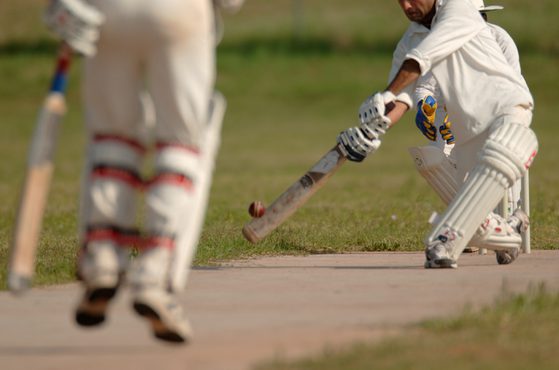Out with PSR, in with SCR — key takeaways for the Premier League’s new financial era

We explore how the Premier League’s landmark shift from PSR to the new SCR and SSR systems will reshape financial regulation.
Read more
We make the difference. Talk to us: 0333 004 4488 | hello@brabners.com
Since turning professional in 1996, rugby union has faced recurring financial challenges that threaten the stability of clubs, communities and the sport itself. In the UK and beyond, many clubs have struggled to balance the books — often leading to heartbreaking outcomes for players, staff and fans alike.
Now, change appears to be essential for rugby’s survival. Most Premiership clubs are balance sheet insolvent and similar financial difficulties can be found across much of the world.
Here, William Hardwick explores the state of world rugby’s finances and fortunes and explains how a change in mindset from directors of struggling clubs and governing bodies may be the key to saving the sport.
The frequency of mismanaged finances in rugby clubs highlights the need for systemic change. Former French international Abdelatif Benazzi — who now aims to lead World Rugby — has bluntly suggested that the sport “will die without a new plan”.
A financial report by insolvency experts Leonard Curtis paints a grim picture for English rugby. It found that every Premiership club posted losses in the 2022/23 season and seven of the ten clubs were deemed balance sheet insolvent.
Premiership Rugby clubs aren’t unique in operating in this manner. In recent years, we’ve witnessed an abundance of football clubs who are also balance sheet insolvent but continue to operate through commercial diversification or wealthy ownership.
Balance sheet insolvency means that a company's liabilities exceed its assets — indicating a potential future inability to cover debts. This stands in contrast to cash flow insolvency which refers to an imminent (or near-imminent) situation, demonstrated by a company’s failure to pay its debts when they’re due.
While the report hasn’t revealed any of the clubs to be cash flow insolvent, a further assessment of the situation will be available when the financial figures are released from the 2023/24 season. Until then, it was concluded that Leicester, Gloucester and Northampton are the only Premiership clubs that would be able to continue operating without significant investment.
However, even these clubs aren’t without their problems. Leicester Tigers — arguably the biggest club in the country — was facing administration in 2023. This was only avoided with an urgent £13m investment from two of its existing shareholders.
The Supreme Court has held that the test for whether a company is balance sheet insolvent is to be administered commercially, taking into account all the company's circumstances. This means that the company's balance sheet won’t be definitive as to whether the company is balance sheet insolvent. This may be a particular reason to take specialist legal advice, as such circumstances can be difficult to value.
Club directors need to be mindful of their obligation to prioritise creditors' interests over shareholder interests when insolvency threatens. Missteps can lead to severe personal consequences, including personal liability for wrongful trading, disqualification from directorship and reputational harm.
The case of BTI 2014 LLC v Sequana SA explains that such a duty is owed to creditors by directors — and that directors should act in the best interest of creditors when the prospect of insolvency looms.
This is because if an insolvent company goes into administration or liquidation:
An obvious example comes from Worcester Warriors’ administration, in which owners Jason Whittingham and Colin Goldring were disqualified from being company directors for 12 months and fined for their failures to file accounts in the financial year preceding Worcester’s liquidation.
Remarkably, in the 2022/23 season, no Premiership club turned a profit. Gloucester had the smallest loss at £0.5m, while Saracens posted a £5.3m deficit. The cumulative debt across Premiership clubs reached £311.5m.
High wage-to-revenue ratios have proved unsustainable. The average wage bill across the league in 2022/23 was £13.2m — up from £11.8m in 2018/19 — with some teams such as Sale, Newcastle and Bristol operating with an average wage to revenue ratio of over 80%. The league’s average wage to revenue ratio was 72% in both 2022/23 and 2018/19, suggesting that post-pandemic the league has returned to a similar pattern of revenue earning and spending that was deemed to be one of the reasons that led to Wasps, Worcester and London Irish being liquidated.
A 2011 BBC article still resonates to this day and emphasises how little the game has grown. It discussed the demise of rugby in the North of England — using the performances and attendances of established professional clubs Sale, Newcastle and Leeds to suggest that gates of 4,000 to 5,000 people were insufficient to sustain those clubs financially. It determined that without the financial backing of wealthy individuals, the clubs would collapse. Since then, Leeds went into administration (following the withdrawal of its most significant backer at the time) and now sits in the fourth tier of English rugby. Meanwhile, Newcastle and Sale recorded average attendances of 4,501 and 5,385 respectively and ranked as two of the bottom three teams within Leonard Curtis’ performance index.
While English clubs aren’t alone in their financial struggles, some nations are presenting new models for how rugby can thrive.
France is the most financially secure union. Its domestic league has become the world’s leader, attracting the sport’s best talent, with its multiple professional leagues and playoff structures playing a critical role in its popularity.
The stark contrast between the French and English domestic game can be seen through TV deals. France’s ‘Top 14’ is valued at £107m a year and its ‘Pro D2’ at £8.9m a year across five seasons, whereas the Premiership’s deal with TNT sports is valued at £33m a year for two years. This marks a decline of 10% from its previous deal. Meanwhile, there have been no televised games from England’s second tier for almost a decade.
Japan also appears to be a beacon of stability. It recently announced the addition of three new clubs across its top three divisions and also seems to be attracting some of the top international players. Japan Rugby League One (the top division) has also generated corporate buy-in, with the likes of Toyota, Honda, Yamaha and Panasonic involved with the ownership of teams.
Ireland has often been praised for its central control model. However, there have been recent complaints as to its sustainability, as it appears to benefit only one of its four provinces — Leinster. Leinster has ten centrally contracted international players in contrast to Connacht, Ulster and Munster, which only have one each.
However, other home nation unions — including Scotland and Wales — have reported losses in recent years. The Welsh Rugby Union recently identified a £29m funding gap for its ‘One Wales’ strategy and national team players almost went on strike over contract conditions before a key Six Nations match against England in 2023.
Meanwhile, the Scottish Rugby Union recorded a loss of £10.6m for the 2023/24 financial year and has since set itself on a path towards profitability with a ‘financial reset’.
Even New Zealand — arguably the flagbearer of world rugby and possessor of its most valuable brand, the All Blacks — is facing decreasing participation in the sport at grassroots level and a lack of investment. Its union posted a loss of £4.275m in 2023 and the funding of its Super Rugby franchises and National Province Championship has been questioned following the collapse of a proposed $200m venture with private equity firm Silver Lake. This has seen a talent drain from the country, with many of its stars forfeiting their right to play for the national team in favour of more financial security by playing in France and Japan.
Similar stories can be seen with double World Champions South Africa, which can’t financially pursue its own premier domestic league and Argentina, whose short-lived Super Rugby franchise imploded due to financial issues caused by the COVID-19 pandemic.
Rugby Australia seems to be in a particularly precarious position. It posted a deficit of approximately £4.8m on the back of its worst ever performance at a Rugby World Cup in 2023, with Rugby Union increasingly being pushed to the sidelines in the competitive Australian market by sports such as AFL, NRL, cricket and swimming.
It's hard to say whether the lack of growth in revenue and spectators is the fault of the game’s administrators or the product simply failing to entice fans like it did in the 90s and early 2000s.
The struggle to generate revenue has led to plans for an international world league that would run through an entire calendar year, comprising 24 teams split into two divisions of 12. However, the plan has drawn heavy criticism from those who believe that it will inhibit the growth of rugby globally by limiting the opportunities of so-called ‘Tier 2’ nations such as Fiji, Portugal, the US, Samoa, Uruguay, Canada, Georgia and Spain.
This dilemma is also demonstrated at a domestic level, where there are ongoing murmurs of a unified British and Irish league in response to the financial struggles of the English, Scottish and Welsh clubs. However, this would leave Italian sides Bennetton Treviso and Zebre out in the cold at a time when Italian Rugby seems to have become resurgent and enjoyed unprecedented success in this year’s Six Nations.
The challenges facing rugby are serious and require immediate, strategic changes. As Winston Churchill famously said, “those that fail to learn from history are doomed to repeat it”. Leonard Curtis’ report indeed suggests that rugby is currently doomed to repeat history. The model of business and spending has continued in much the same way despite the warning signs. Rugby’s administrators — along with club directors — must act decisively to preserve the sport's future. Directors of struggling clubs and national governing bodies must be aware of the duties they owe to their creditors if the prospect of insolvency is real and act in a positive and decisive manner to rescue their situation before it’s too late.
If you need advice from expert insolvency lawyers within our award winning sports team, talk to us by giving us a call on 0333 004 4488, sending us an email at hello@brabners.com or completing our contact form below.

Loading form...

We explore how the Premier League’s landmark shift from PSR to the new SCR and SSR systems will reshape financial regulation.
Read more

We’re delighted to announce the opening of a new office in London, marking a major milestone at the end of a year defined by strong financial performance.
Read more

2025 could well be remembered as the ‘end of the beginning’ for The Hundred.
Read more